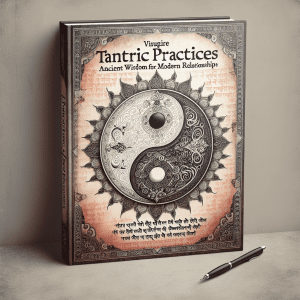Sexual Revolution: How the 1960s Changed Our Perception of Sex
The 1960s were a time of unprecedented social change, and one of the most significant transformations was how society viewed sex. Dubbed the Sexual Revolution, this era was marked by a series of cultural and legislative shifts that radically altered our perceptions of sexuality, gender roles, and personal freedom. But how exactly did the 1960s change our perception of sex, and what were the lasting impacts of this tumultuous decade? Let’s dive in.
The Rise of the Pill: Birth Control and Women’s Liberation
One of the most groundbreaking developments of the 1960s was the introduction of the birth control pill. Approved by the FDA in 1960, the pill began to be widely available and gave women an unprecedented level of control over their reproductive lives. This newfound freedom had a ripple effect on various aspects of society:
- Empowerment: Women could now pursue careers and education without the looming fear of an unplanned pregnancy.
- Sexual Freedom: The pill diminished the risks associated with premarital and extramarital sex, contributing to a more open sexual culture.
- Family Planning: Couples could plan their families more effectively, allowing for better socio-economic stability.
In essence, the pill symbolized a broader liberation movement, intertwining with the feminist and civil rights movements of the time.
The Influence of Pop Culture
The 1960s also saw a seismic shift in how popular culture portrayed sex. From music and movies to literature and television, the decade pushed boundaries and challenged the status quo.
- Music: Bands like The Beatles and The Rolling Stones sang openly about love and relationships, while icons like Elvis Presley and Janis Joplin brought a raw sensuality to their performances.
- Film: Movies such as “A Clockwork Orange” and “Easy Rider” explored themes of sexual liberation and countercultural rebellion.
- Literature: Authors like Allen Ginsberg and Henry Miller delved into explicit content that would have been deemed obscene in previous decades.
These cultural artifacts didn’t just entertain; they educated and influenced public opinion, helping to demystify sex and encourage open discussions.
Legal and Legislative Changes
The 1960s were also a time of significant legal reforms that challenged existing norms around sex and relationships:
- Griswold v. Connecticut (1965): This landmark Supreme Court case established the right to privacy in marital relations, paving the way for wider use of contraception.
- Loving v. Virginia (1967): This case struck down laws banning interracial marriage, signaling a broader acceptance of diverse relationships.
- Sex Education: Schools began to incorporate sex education into their curricula, emphasizing the importance of understanding and responsibly managing one’s sexual health.
These legal advancements not only protected individual rights but also contributed to a more enlightened and progressive society.
Changing Gender Roles
The 1960s were a time of questioning and redefining traditional gender roles. The feminist movement, spearheaded by figures like Betty Friedan, Gloria Steinem, and Simone de Beauvoir, called for gender equality and helped to dismantle the rigid roles that had constrained both women and men.
- Workforce Integration: Women began to enter traditionally male-dominated fields, challenging the notion that a woman’s place was only in the home.
- Sexual Agency: Both men and women started to explore sexual relationships more freely, outside the parameters of matrimony.
This reevaluation of gender roles led to a broader acceptance of various sexual identities and preferences, laying the groundwork for future LGBTQ+ rights movements.
The Lasting Impact
Looking back, the Sexual Revolution of the 1960s was not just a fleeting moment but a seismic shift that forever changed our societal landscape. It empowered individuals to take control of their sexual lives, challenged long-standing norms, and paved the way for ongoing discussions about sexuality, rights, and equality.
So, the next time you find yourself casually discussing topics that would have been scandalous fifty years ago, give a nod to the 1960s. After all, it’s the decade that taught us that sex isn’t just a private matter – it’s a powerful force for social change.
Stay tuned for more fascinating insights into how the past shapes our present, and remember: history isn’t just a series of dry facts. It’s a scandalous, thrilling, and ever-relevant saga that continues to influence our lives today.
Until next time, keep questioning, keep learning, and keep exploring!



